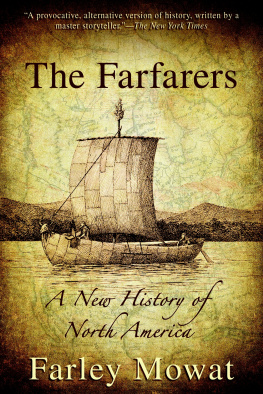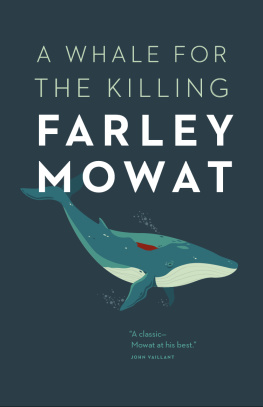Mowat - Lost in the Barrens
Here you can read online Mowat - Lost in the Barrens full text of the book (entire story) in english for free. Download pdf and epub, get meaning, cover and reviews about this ebook. City: Toronto;Ont, year: 2008;1987, publisher: McClelland & Stewart, genre: Detective and thriller. Description of the work, (preface) as well as reviews are available. Best literature library LitArk.com created for fans of good reading and offers a wide selection of genres:
Romance novel
Science fiction
Adventure
Detective
Science
History
Home and family
Prose
Art
Politics
Computer
Non-fiction
Religion
Business
Children
Humor
Choose a favorite category and find really read worthwhile books. Enjoy immersion in the world of imagination, feel the emotions of the characters or learn something new for yourself, make an fascinating discovery.

- Book:Lost in the Barrens
- Author:
- Publisher:McClelland & Stewart
- Genre:
- Year:2008;1987
- City:Toronto;Ont
- Rating:3 / 5
- Favourites:Add to favourites
- Your mark:
- 60
- 1
- 2
- 3
- 4
- 5
Lost in the Barrens: summary, description and annotation
We offer to read an annotation, description, summary or preface (depends on what the author of the book "Lost in the Barrens" wrote himself). If you haven't found the necessary information about the book — write in the comments, we will try to find it.
Lost in the Barrens — read online for free the complete book (whole text) full work
Below is the text of the book, divided by pages. System saving the place of the last page read, allows you to conveniently read the book "Lost in the Barrens" online for free, without having to search again every time where you left off. Put a bookmark, and you can go to the page where you finished reading at any time.
Font size:
Interval:
Bookmark:
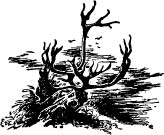
Contents
For R OBERT A LEXANDER M OWAT
who will probably try to be one
For M URRAY B ILOKI
who would make a good one
For J ACK M OWAT
who is a real Indian already
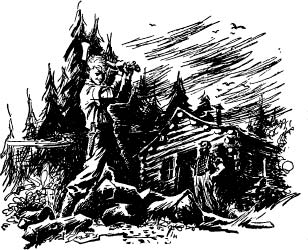
CHAPTER 1
Jamie and Awasin
T HE MONTH OF JUNE WAS GROWING old. It had been a year since Jamie Macnair left Toronto, the city of his birth, to take up a new life in the subarctic forests of northern Canada. Beside the shores of Macnair Lake the tamaracks were greening now after the winters blackness. Out on the lake great loons cried shrilly. As Jamie squatted in front of the log cabin, helping his uncle bale up the winters catch of furs, he tried to remember how he had felt on that day, a year past, when he climbed out of the train at the lonely frontier town called The Pas to meet his uncle.
Jamies uncle, Angus Macnair, had been a trader in the arctic, the master of a sealing schooner in the Bering Sea, and finally a trapper who roamed over the broad forests of the north. To Jamie, his uncle was almost a legend, and when the telegram came from him it filled the boy with excitement.
ARRANGEMENTS MADE FOR YOU TO JOIN ME AT THE PAS STOP LETTER WITH DETAILS FOLLOWS .
ANGUS MACNAIR
That eagerly awaited letter had brought with it some unhappiness for Jamie. It had reminded him sharply of the tragedy of his parents deaths in a car accident seven years ago. And it had made clear something he had never really faced beforethat apart from his uncle, whom he had never seen, he was truly alone. During the past seven years he had taken the security of the boarding school for granted. But, reading Angus Macnairs letter, he realized that it was no real home, and had never been one.
Jamie was nine when his parents died, and Angus Macnair had become his guardian, for he was the boys only close relative. It was Angus who had picked the boarding school in Toronto, and it was a good one too, for Angus wanted only the best for his nephew. For seven years Angus had run his trap line with furious energy in order to meet the cost of the school. But in the past two years the fur market had dropped almost out of sight, and the money was nearly at an end.
Angus had explained it in his letter.
And so you see, Jamie, he wrote. I can no longer keep you at the school. You could maybe stay on in Toronto and get a job, but youre too young for that, and anyhow I hoped youd rather come with me. Its long past time we got to know each other. So I took the chance youd want it this way. Your ticket is in the envelope along with enough money for the trip. And Ill be waiting, lad, and hoping that youll come.
Angus need have had no doubts. For years past Jamie had loved to read about the north and for years Angus Macnair had been his idol.
In the last week of June, Jamie found himself bundled aboard the Trans-Canada train with the farewells of his school friends still ringing in his ears. For two days the train rolled westward, then it turned abruptly north through the province of Manitoba. The dark jack-pine forests began to swallow up the prairie farmlands and the train rolled on, more slowly now, over the rough roadbed leading to the frontier country.
Five hundred miles and two days north from Winnipeg, the train drew up by a rough wooden platform. Jamie climbed uncertainly down to stand staring at the rough shanties and the nearby forests that threatened to sweep in and engulf the little settlement of The Pas.
A huge, red-bearded man in a buckskin jacket strode forward and caught the boy hard about the shoulders in a bear hug.
Do ye not know me, Jamie? he cried. And then, grinning at Jamies stammering reply, he tightened his hold on the boys shoulder and swung him round.
Youve come to meet the north, my lad, he said, and Im thinking youll be in love with it before the month is out.
Angus Macnair had been a good prophet, for during the six-week canoe trip north to Macnair Lake, Jamie had become fascinated by the wild face of this new world. Now, a year later, he was really a part of that world. The year in the forests had swelled his shoulders with new muscles so that he looked taller than his five-foot-eight. Summer suns and winter winds had tanned his face. His blue eyes were sharp and alert under his tousled mat of fair hair.
And the little cabin by the shores of the lake had become his homehis first real home since his parents died.
Built within a stones throw of the sandy shore, the cabin was nevertheless almost surrounded by the sheltering forests. No winter gales could reach it, and the log walls, well chinked with moss and clay, were proof against the sharpest frosts. Crouched comfortably among the trees, it looked out through two small windows over a lake that was a glittering expanse of blue in summer and a vast white plain in winter.
Inside, it was divided into two rooms. The largest was the living room. It had two bunks built against the side walls. A potbellied Quebec heater stood in the center of the floor, glowing cherry-red in the winter days. Beside the stove a long, roughhewn table stretched almost across the room and at either end of it stood a big, homemade easy chair upholstered with black-bear hide. Shelves along the rough log walls held guns, a number of wood carvings done by the Indians, and the well-worn rows of Anguss books. On the split-log floors half a dozen Indian-tanned deer hides made soft rugs.
The tiny kitchen in the rear was cut off from the main cabin by a log partition, and behind the partition Angus cooked the solid and simple meals of the northland.
Although the cabin was four hundred miles from civilization, and two hundred miles from the nearest white man, Jamie had not found it lonely. Not twenty miles away was the settlement of a band of Woodland Cree Indians. These fine and sturdy people had long been Angus Macnairs best friends and they soon became Jamies friends as well. Alphonse Meewasin, headman of the Crees, had been Anguss stout companion on a hundred journeys and it was only natural that Alphonses son, Awasin, should become almost a brother to young Jamie.
In appearance Awasin was Jamies opposite. He was lean as a whip, with long black hair that hung almost to his shoulders. His eyes too were black, and they smiled as often as his mouthand that was very often. For three seasons Awasin had attended the Indian school in far-off Pelican Narrows, so that he could read and speak English almost as well as any city boy. But most of his life had been lived in the heart of the forests and the wilderness was as much a part of him as his own skin.
Jamie and Awasin had taken to each other at once, and Awasin had appointed himself Jamies teacher. Quickly Jamie became competent with a paddle and at driving a string of dogs. He learned to shoot well and he learned enough about trapping to earn the money for a .22 rifle of his own. Most important, under the instruction of Awasin and of Angus Macnair, Jamie learned to feel something of the forceful love of life that belongs particularly to those who dwell in the high arctic forests.
It had been a year filled to the brim with new adventures, and as Jamie wound a rawhide strap around a pile of muskrat pelts his imagination was reliving those events. With a start he looked up to see a slim cedar canoe rounding a nearby point.
Awasin was in the bow, waving his paddle in greeting. And in the stern Alphonse stolidly chewed his old pipe as he thrust his paddle into the icy waters of the lake.
Next pageFont size:
Interval:
Bookmark:
Similar books «Lost in the Barrens»
Look at similar books to Lost in the Barrens. We have selected literature similar in name and meaning in the hope of providing readers with more options to find new, interesting, not yet read works.
Discussion, reviews of the book Lost in the Barrens and just readers' own opinions. Leave your comments, write what you think about the work, its meaning or the main characters. Specify what exactly you liked and what you didn't like, and why you think so.

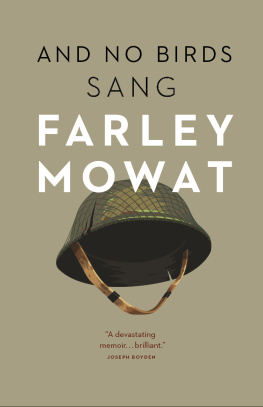
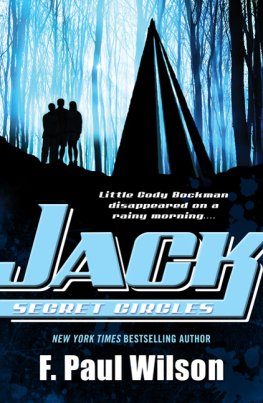
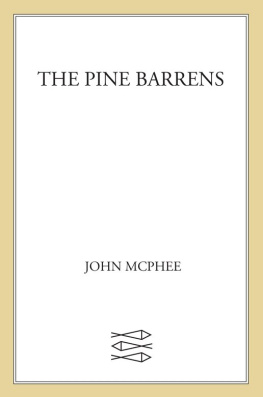
![Farley Mowat - People of the Deer [Paperback]](/uploads/posts/book/52958/thumbs/farley-mowat-people-of-the-deer-paperback.jpg)
